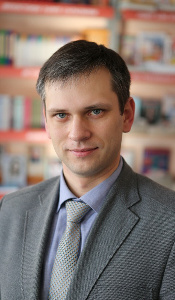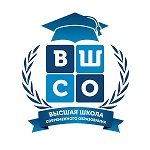ENGLISH TEACHERS’ PROFESSIONAL LEARNING COMMUNITY IN SENIOR HIGH SCHOOLS STUDENTS: STUDENTS’ PERSPECTIVE ON ITS’ IMPLEMENTATION
Аннотация
This study investigates the English teachers’ professional learnisg community from the students’ perspective on its implementation. It is done at some senior high schools in Bekasi. The design of this study was based on qualitative methods with a descriptive design. The data collection technique is done through a semi-structured interview technique. The selected study respondents were based on the purposive sampling technique. Through this technique, the respondents selected to be interviewed were the outstanding principals in senior high schools. The research instrument used was an interview based on the checklist found in Olivier and Hipp’s professional learning community model. The result of the study is that the professional learning community is very effective in school improvement practice and has a significant role in shaping teachers’ personal and collective ability and application. The development of a professional learning community through strengthening the practice of the main functions that are the backbone of the professional learning community, such as collective learning practices and applications, can be seen to improve teachers’ teaching practices and student learning activities which are basic practices in school improvement activities.
Скачивания
Литература
References
Beames J.R., Johnston L., O’Dea B., Torok M., Boydell K., Christensen H., Werner-Seidler A. Addressing the mental health of school students: Perspectives of secondary school teachers and counselors. International Journal of School & Educational Psychology, 2022, vol. 10(1), pp. 128-143. https://doi.org/10.1080/21683603.2020.1838367
Scales PC, Pekel K, Sethi J, Chamberlain R, Van Boekel M. Academic year changes in student-teacher developmental relationships and their linkage to middle and high school students’ motivation: A mixed methods study. The Journal of Early Adolescence, 2020, vol. 40(4), pp. 499-536. https://doi.org/10.1177/0272431619858414
O’Brien S., McNamara G., O’Hara J., Brown M. Learning by doing: Evaluating the key features of a professional development intervention for teachers in data-use, as part of whole school self-evaluation process. Professional Development in Education, 2020, vol. 48(2), pp. 273-297. https://doi.org/10.1080/19415257.2020.1720778
Somprach K., Tang K.N., Popoonsak P. The relationship between school leadership and professional learning communities in Thai basic education schools. Educational Research for Policy and Practice, 2017, vol. 16(2), pp. 157-175. https://doi.org/10.1007/s10671-016-9206-7
Antinluoma M., Ilomäki L., Lahti-Nuuttila P., Toom A. Schools as professional learning communities. Journal of Education and Learning, 2018, vol. 7(5), pp. 76-91. https://doi.org/10.5539/jel.v7n5p76
Haiyan Q., Allan W. Creating conditions for professional learning communities (PLCs) in schools in China: the role of school principals. Professional Development in Education, 2021, vol. 47(4), pp. 586-598. https://doi.org/10.1080/19415257.2020.1770839
Voelkel Jr R.H., Chrispeels J.H. Understanding the link between professional learning communities and teacher collective efficacy. School Effectiveness and School Improvement, 2017, vol. 28(4), pp. 505-526. https://doi.org/10.1080/09243453.2017.1299015
Schildkamp K., Poortman C.L., Handelzalts A. Data teams for school improvement. School Effectiveness and School Improvement, 2016, vol. 27(2), pp. 228-254. http://dx.doi.org/10.1080/09243453.2015.1056192
Liu S.H. Teacher professional development for technology integration in a primary school learning community. Technology, Pedagogy and Education. 2013, vol. 22(1), pp. 37-54. https://doi.org/10.1080/1475939X.2012.719398
Owen S.M. Teacher professional learning communities in innovative contexts: ‘ah hah moments’, ‘passion’ and ‘making a difference’ for student learning. Professional Development in Education, 2015, vol. 41(1), pp. 57-74. http://dx.doi.org/10.1080/19415257.2013.869504
Scott S. The theory and practice divide in relation to teacher professional development. Online learning communities and teacher professional development: Methods for improved education delivery, 2010, pp. 20-40.
Mockler N. Teacher professional learning under audit: Reconfiguring practice in an age of standards. Professional Development in Education, 2020, vol. 48(1), pp. 166-180. https://doi.org/10.1080/19415257.2020.1720779
Stammes H., Henze I., Barendsen E., de Vries M. Bringing design practices to chemistry classrooms: studying teachers’ pedagogical ideas in the context of a professional learning community. International Journal of Science Education, 2020, vol. 42(4), pp. 526-546. https://doi.org/10.1080/09500693.2020.1717015
Ashdown D.M., Bernard M.E. Can explicit instruction in social and emotional learning skills benefit the social-emotional development, well-being, and academic achievement of young children? Early Childhood Education Journal, 2012, 39(6), pp. 397-405. https://doi.org/10.1007/s10643-011-0481-x
Harris A., Jones M. Professional learning communities and system improvement. Improving Schools, 2010, vol. 13(2), pp. 172-181. https://doi.org/10.1177/1365480210376487
Jones L., Stall G., Yarbrough D. The importance of professional learning communities for school improvement. Creative Education, 2013, vol. 4(05), pp. 357-361. http://dx.doi.org/10.4236/ce.2013.45052
Battersby S.L., Verdi B. The culture of professional learning communities and connections to improve teacher efficacy and support student learning. Arts Education Policy Review, 2015, vol. 116(1), pp. 22-29. https://doi.org/10.1080/10632913.2015.970096
Hairon S., Dimmock C. Singapore schools and professional learning communities: Teacher professional development and school leadership in an Asian hierarchical system. Educational Review, 2012, vol. 64(4), pp. 405-424. https://doi.org/10.1080/00131911.2011.625111
Nordin A. Teacher professionalism beyond numbers: A communicative orientation. Policy Futures in Education, 2016, 14(6), pp. 830-845. https://doi.org/10.1177/1478210316656507
Frelin A. Exploring relational professionalism in schools. Springer Science & Business Media, 2013, 138 p.
Liu S.H. Teacher professional development for technology integration in a primary school learning community. Technology, Pedagogy and Education, 2013, vol. 22(1), pp. 37-54. https://doi.org/10.1080/1475939X.2012.719398
Ma N., Du L., Zhang Y.L., Cui Z.J., Ma R. The effect of interaction between knowledge map and collaborative learning strategies on teachers’ learning performance and self-efficacy of group learning. Interactive Learning Environments, 2020, 23, pp. 1-5. https://doi.org/10.1080/10494820.2020.1855204
Moats L. What teachers don’t know and why they aren’t learning it: Addressing the need for content and pedagogy in teacher education. Australian Journal of Learning Difficulties, 2014, vol. 19(2), pp. 75-91. https://doi.org/10.1080/19404158.2014.941093
Wong R. When no one can go to school: does online learning meet students’ basic learning needs? Interactive Learning Environments, 2020, pp.1-7. https://doi.org/10.1080/10494820.2020.1789672
Blitz C.L. Can Online Learning Communities Achieve the Goals of Traditional Professional Learning Communities? What the Literature Says. Regional Educational Laboratory Mid-Atlantic. 2013, 37 p. https://files.eric.ed.gov/fulltext/ED544210.pdf
Chen P., Lee C.D., Lin H., Zhang C.X. Factors that develop effective professional learning communities in Taiwan. Asia Pacific Journal of Education, 2016, vol. 36(2), pp. 248-65. https://doi.org/10.1080/02188791.2016.1148853
Tomčíková I. Implementation of inquiry-based education in geography teaching-findings about teachers’ attitudes. Review of International Geographical Education Online, 2020, vol. 10(4), pp. 533-548. https://doi.org/10.33403/rigeo.791713
Vangrieken K., Meredith C., Packer T., Kyndt E. Teacher communities as a context for professional development: A systematic review. Teaching and Teacher Education, 2017, vol. 61, pp. 47-59. https://doi.org/10.1016/j.tate.2016.10.001
Disbray S., O’Shannessy C., MacDonald G., Martin B. Talking together: how language documentation and teaching practice support oral language development in bilingual education programs. International Journal of Bilingual Education and Bilingualism, 2022, vol. 25(4), pp. 1451-1466. https://doi.org/10.1080/13670050.2020.1767535
Park J.H., Byun S.Y. Principal support, professional learning community, and group-level teacher expectations. School Effectiveness and School Improvement, 2021, vol. 32(1), pp. 1-23. https://doi.org/10.1080/09243453.2020.1764061
El Mhouti A., Nasseh A., Erradi M., Vasquèz J.M. Enhancing collaborative learning in Web 2.0-based e-learning systems: A design framework for building collaborative e-learning contents. Education and Information Technologies, 2017, vol. 22(5), pp. 2351-64. https://doi.org/10.1007/s10639-016-9545-2
Chuang H.H. Leveraging CRT awareness in creating web-based projects through use of online collaborative learning for pre-service teachers. Educational Technology Research and Development, 2016, vol. 64(4), pp. 857-76. https://doi.org/10.1007/s11423-016-9438-5
Cohen-Vogel L., Cannata M., Rutledge S.A., Socol A.R. A model of continuous improvement in high schools: A process for research, innovation design, implementation, and scale. Teachers College Record, 2016, vol. 118(13), pp. 1-26. https://doi.org/10.1177/016146811611801301
DuFour R., DuFour R. Learning by doing: A handbook for professional learning communities at work TM. Solution Tree Press, 2013, 280 p.
Gilboy M.B., Heinerichs S., Pazzaglia G. Enhancing student engagement using the flipped classroom. Journal of Nutrition Education and Behavior, 2015, vol. 47(1), pp. 109-114. https://doi.org/10.1016/j.jneb.2014.08.008
Biggs J., Tang C. Teaching for quality learning at university. McGraw-hill education (UK), 2011, 418 p. https://cetl.ppu.edu/sites/default/files/publications/-John_Biggs_and_Catherine_Tang-_Teaching_for_Quali-BookFiorg-.pdf
Mellow G.O., Woolis D.D., Klages-Bombich M., Restler S. Taking College Teaching Seriously-Pedagogy Matters! Fostering Student Success Through Faculty-Centered Practice Improvement. Stylus Publishing, LLC; 2015, 140 p.
Lenning O.T., Hill D.M., Saunders K.P., Stokes A., Solan A. Powerful learning communities: A guide to developing student, faculty, and professional learning communities to improve student success and organizational effectiveness. Stylus Publishing, LLC; 2013, 370 p.
Dogan S., Tatik R.S., Yurtseven N. Professional learning communities assessment: Adaptation, internal validity, and multidimensional model testing in Turkish context. Educational Sciences: Theory and Practice, 2017, vol. 17(4), pp. 1203-1229. https://doi.org/10.12738/estp.2017.4.0479
Просмотров аннотации: 485
Copyright (c) 2022 Lamhot Naibaho

Это произведение доступно по лицензии Creative Commons «Attribution-NonCommercial-NoDerivatives» («Атрибуция — Некоммерческое использование — Без производных произведений») 4.0 Всемирная.





































